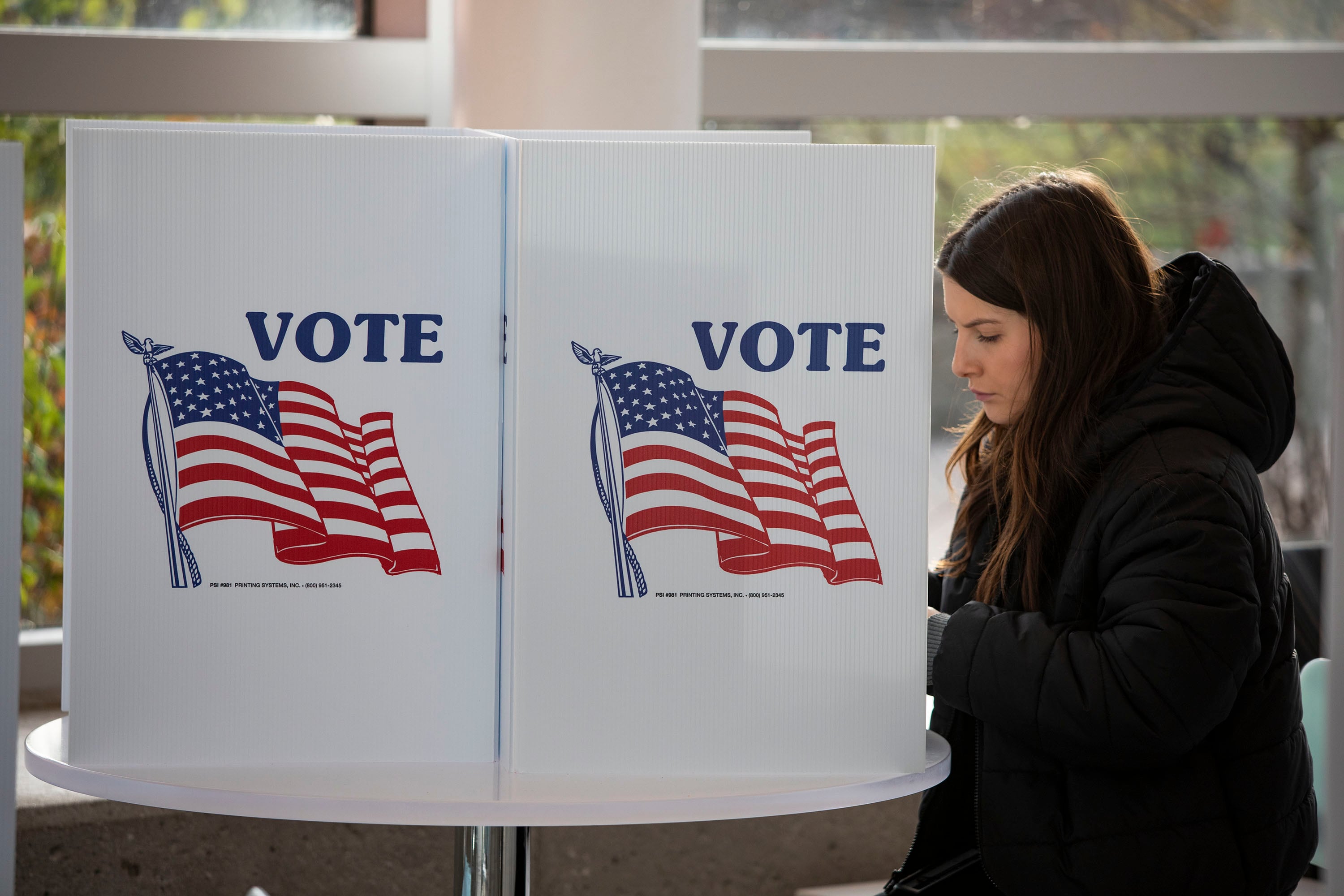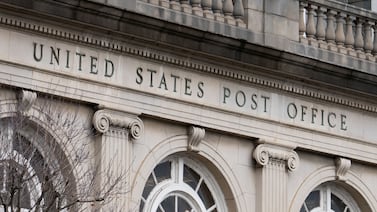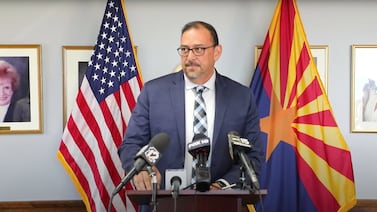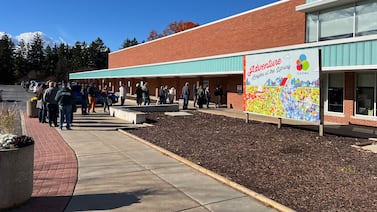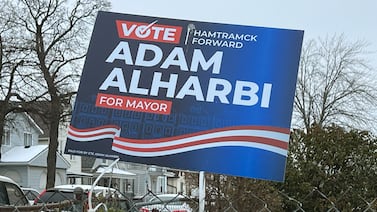Votebeat is a nonprofit news organization reporting on voting access and election administration across the U.S. Sign up for our free newsletters here.
Ruth Singleton’s grandmother and great-aunt were in their 80s and 90s when they first registered to vote, motivated by Barack Obama’s campaign. Singleton, of Auburn Hills, was in her mid-20s when she first registered.
She hopes her daughter Nya, 16, won’t wait as long.
A bill in the Michigan legislature could give Nya her chance soon. The proposal would allow 16-year-olds to preregister to vote. Then they are automatically eligible to cast a ballot on the very day they turn 18. Currently in Michigan, only teens who are 17½ can preregister.
Supporters of the bill say lowering the age for preregistration (which does not allow people under 18 to actually vote) prepares young adults to participate sooner and more actively in democracy. Election officials say it also eases the registration process later, enabling smoother voting overall.
State Rep. Betsy Coffia (D-Traverse City) introduced House Bill 4569 last week during a House Elections Committee hearing. Coffia said local clerks encouraged her to introduce the measure and she believes pre-registration of younger teens will “increase the likelihood” of more “robust” participation of young people in elections over time.
Fifteen states and the District of Columbia already allow the preregistration of 16-year-olds, according to the National Conference of State Legislatures.
Coffia said 16 is a good age to get pre-registered because it’s when teens typically take on “significant” legal responsibilities, such as getting a driver’s license, and is when their civics or government studies classes can give students a “newfound enthusiasm” for the democratic process.
“It can help increase voter turnout in our state,” said Coffia during the hearing.
Michigan had the highest rate of young voters during the November 2022 election, according to the Michigan Secretary of State’s Office: 37 percent of voters 18-29 cast ballots, compared with 23 percent nationwide. Young voters historically are more likely to vote for Democrats, research shows.
But there are also younger Michigan residents who are not engaged in voting even when they turn 18 because they are “uninformed … disengaged or for another reason,” Coffia said.
Nya Singleton, a sophomore at Lake Orion High School, said she and her classmates view voting as a way to make needed social and political changes on issues such as Black Lives Matter and women’s rights.
“They want to be able to voice their opinion and have it be beneficial to their lives,” Nya said of her classmates. “Having a vote can impact their lives and their families.”
Democratic state Rep. Matt Koleszar, a former teacher who represents part of northwestern Wayne County, said that if the bill becomes law, it will have significant returns for democracy.
“The [Advanced Placement] government teacher in me loves every part of this right now, “ said Koleszar. “It’s getting the youngest voting block engaged early.”
Koleszar added that when the school where he worked held registration events, “we would find a pretty long line of 17½-year-olds.”
Canton Township Clerk Michael Siegrist, was among several clerks testifying Tuesday in support of the bill. Siegrist said age 16 is an ideal opportunity to get a future voter entered into the registration system, calling it “super convenient,” because it’s when they’re getting processed for a driver’s license and it’s efficient to transfer their official, verified personal information into their voter registration while they’re at the Secretary of State office. Otherwise, they might not get the same convenience until they return to get a new license at 21.
“So there’s people in that little window to get registered,” Siegrist told Votebeat in an interview. “We’ve been putting a lot of energy and effort into trying to do voter registration drives at the high schools to get these folks registered when they’re 17½, so that they are registered for the next election.”
Interim East Lansing City Clerk Marie Wicks said the bill could potentially eliminate the extremely long polling place waits Michigan college students experienced on Election Day last November. Throngs of voters at the campuses of University of Michigan and Michigan State stood in line for hours, stretching in the wee hours of morning due to high turnout and on-site voter registration for some out-of-state students and first-time voters, which takes extra time.
“It would be a huge time saver for us,” said Wicks.
State Rep. Jay DeBoyer, a Republican elections committee member who represents parts of St. Clair and Macomb counties, signaled opposition to the preregistration bill, and the Democrats’ other new election bills, in a statement after the hearing, saying Michigan lawmakers should focus on addressing “concerns” that have arisen in recent elections rather than “moving forward with new proposals that would likely create more questions and further water down our process.” He said he was concerned about “logistics and costs” of preregistration and noted Colorado spent $600,000 to implement a preregistration program in 2013.
Unlike in Colorado, however, Michigan’s preregistration program is already implemented, and because the bill only lowers the eligibility age, clerks and voting experts say they don’t anticipate any additional costs. DeBoyer did not respond to Votebeat’s request for comment.
Peter de Guzman, an associate researcher on young voter turnout at Tufts University’s Center for Information & Research on Civic Learning and Engagement, explained how the current process would accommodate younger teens who preregister.
“They fill out the same form as another eligible voter and then they are marked as pending on the voter file until they become eligible … until the date passes when they are 18,” de Guzman said. “I don’t expect it to be costly.”
Studies have shown that allowing 16-years-old to preregister can have major benefits, said Joshua Douglas, a professor at the University of Kentucky’s law school who also serves on the advisory board for the advocacy organization Vote16 USA.
“The evidence we have from the states that have done that demonstrates that voter turnout among young people does increase,” said Douglas, an expert on election law. “But I think there’s even an intangible effect as well, not just on turnout but on starting the conversation about voting and civics education earlier.”
Douglas added: “The key here is to break down barriers to turnout.”
Ruth Singleton said the change could help ensure young people like her daughter register before they turn 18, a busy time in life when they are barraged with other commitments, such as preparing for college.
She hopes the bill passes because it will get more young people looking forward to voting.
“Voting really shapes the world,” Singleton said.
Oralandar Brand-Williams is a senior reporter for Votebeat. Contact Oralandar at obrand-williams@votebeat.org. This article is made possible through a partnership with Bridge Michigan, Michigan’s largest nonpartisan, nonprofit news publication.

